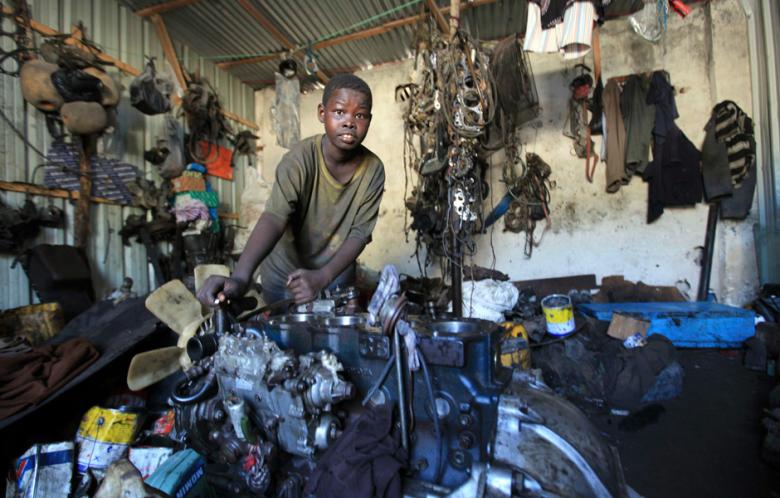
Tuesday, May 01, 2012
By: Ali Abdi Hocho

advertisements
The Somali transitional government hopes new banknotes will be part of solution to the country’s price hikes, as hopes for a political settlement are rising.Mogadishu – The problems Somalia’s citizens must endure are not confined to the longstanding breakdown of security in their country. Their grievances extend to all aspects of their lives.
In recent months, they have suffered an unprecedented hike in the price of essential foodstuffs coupled with a collapse in the value of the national currency. The effect has been severe on Somalis, many of whom rely on cash transfers from relatives abroad to survive. Scores of these families can no longer afford to buy a sufficient amount food.
The galloping inflation has driven hundreds of thousands of families in Mogadishu and in the breakaway Puntland region into dire poverty.
One factor prompting merchants to raise the prices of basic foodstuffs has been a huge influx of money from foreign aid agencies seeking to buy relief supplies from local markets rather than importing them. Some see this practice as having punished the Somali people rather than having helped them, amid growing fears of food shortages.
A second reason as to why prices have risen concerns the collapse in the exchange rate of the Somali shilling, currently trading at about 20,000 shillings to the dollar, from around 3,000 two months ago. As a result the price of many basic foods such as rice, pasta, sugar, and cooking oil have soared, while the cost of fruit and vegetables fluctuates.
Economists do not believe that the Transitional Federal Government (TFG) – some of whose members have been accused of corruption, embezzlement, and theft of relief aid – is capable of getting the inflation or the exchange rate under control.
Nevertheless, it has announced that it will try to remedy the situation by introducing new banknotes in the coming few weeks to replace those currently in circulation.
The new notes are to be issued in denominations of 1,000 (US$0.05), 5,000(US$0.25), 20,000(US$1), and 50,000($US2.5) shillings, the TFG’s Deputy Minister of Finance and Treasury, Ali Dara Fareh, told Al-Akhbar. At present, only 1,000 shilling bills are in circulation.
The new notes were printed in Sudan and delivered to Somali President Sheikh Sharif Ahmad last month. The Khartoum government announced it was footing the US$17 million dollar bill for producing them as a contribution towards helping Somalia rebuild and recover.
The old banknotes were forged on a massive scale as Somalia descended into anarchy in the period between 1996 and 2001.
In 1996, former warlord Abdinour Ahmed Darman had 1000-shilling notes printed in Malaysia with a face value of 200 billion shillings. Fellow warlord Hussein Mohamed Farah Aideed did the same in May 1999, when he put 90 billion shillings worth of fake 1000-shilling notes into circulation, produced by a specialist Canadian printer. In 2001, businessman Muhammad Dilaf, in collaboration with the current security minister of Puntland, Khalif Issa Moden, arranged for 250 billion shillings of forged notes to be printed in Malaysia. That caused the currency’s exchange rate to soar from around 8,000 to 30,000 to the dollar.
It remains to be seen, however, if the TFG will be able to extend its control over all parts of the country. Somalia is undergoing a delicate period of transition which could usher in a new form of federal government, amid a chronically unstable security situation caused by the continuing control of the al-Shabaab militia over several districts.
A breakthrough could be in sight if al-Shabaab agree to Turkey’s offer to host Somali peace talks, mediated by its foreign minister Ahmet Davutoglu, after next month’s scheduled international conference on Somalia in Istanbul. This could establish the stability needed to rebuild the country’s government structures and attend to its political, economic, and military affairs.
This article is an edited translation from the Arabic Edition.